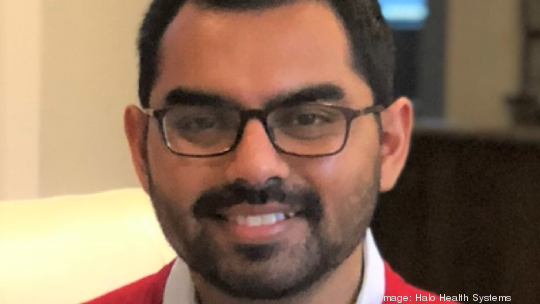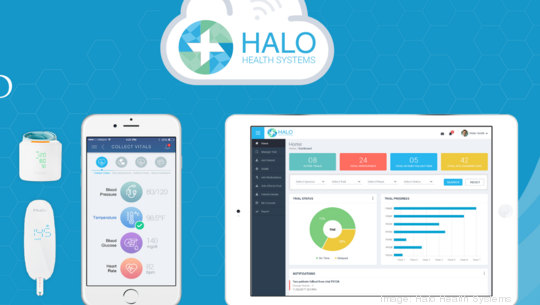
Whether it’s creating a vaccine or even developing a new treatment for a common condition, clinical trials of drugs and medical devices are a costly and lengthy process. And now, due to the global pandemic, many companies have had to put their testing on hold.
Enter, Halo Health Systems, a Dallas-based startup that is digitizing the clinical trial process. And even though it was launched before Covid-19 became a household name, the company sees itself uniquely placed in the industry to help keep trials going through the crisis and to prevent future disruptions to the path to bringing potentially life-saving products to market.
“For me, I have spent more than 15 years in new product development of medical devices and digital health solutions and, as part of that, we were able to work on a lot of innovative designs and bringing them to market,” Veer Mehta, Halo Health Systems founder, told NTX Inno. "One of the things that I noticed is that we were sort of running into a bottleneck trying to get these new technologies and drugs into market due to the inefficiency of the whole clinical trials process.”
Launched in 2018, Halo’s platform helps remotely connect patients to the physicians and organizations conducting trials on new drugs and devices. Its IoT and mobile technology allows for researchers to remotely monitor their patient’s health and adherence to the study guidelines, and digitizes the data collected so analysis can be conducted in real time.

Even before the pandemic, clinical trials could take years and sometimes cost hundreds of millions of dollars, Mehta said. After developing a drug or device, pharma companies outsource the trial process. With many people not living near a research location, finding enough diverse patients for a trial can be difficult. Not to mention, the process of crunching numbers from numerous research sites can take weeks.
“Because the industry is structured in this way, there aren’t the right sort of incentives and drivers… for the clinical research organizations to basically innovate and introduce new technologies,” Mehta said.
One study, conducted by the Dallas Diabetes Research Center, looking at the diseases’ effect on the body, used Halo’s system. The company was able to automate the collection of data, as well as digitize the process and statistical analysis. Through its technology, the DDRC saw a 30 percent reduction in costs and a 20 percent reduction in time, Mehta said.
In the wake of the pandemic, some clinical trials have been put on hold due to the difficulty of bringing in patients, who may be fearful of entering a clinic. And beyond the fact that this slows a drug or devices entrance to the market, having a large and diverse study sample often yields better results.
“As an industry, there has been a significant disruption… there’s a lot of fear and anxiety around safety and potentially getting infected,” Mehta said.
As clinical trial researchers look for ways to continue their work amid a continuing crisis, Mehta said he sees Halo becoming part of the way things operate in the new normal. He said that since the technology can allow studies to continue remotely, it can allow research to continue at a faster pace and help studies avoid issues in the instance of a second wave of the virus. Mehta said the remote way of conducting trials and monitoring patients is something that will likely continue after the pandemic, much in the way that telehealth has almost become the norm.
“Pharma companies will need to make sure that their protocols already assume the use of digital technology in clinical trials to collect data and to engage patients,” Mehta said.
The Health Wildcatter- and Capital Factory-backed company and its eight-person team of part- and full-time employees has worked with a number of technology and research partners since its launch, including Uber Health, the Foundation for Cardiovascular Research & Innovation and iHealth. Mehta said as more monitoring devices are rolled out, Halo plans to integrate them into its systems, helping further streamline the process and bringing more tech and patients into trials.
“Our mission is to ensure that lifesaving drugs and therapies are coming to market as quickly as possible,” Mehta said.







